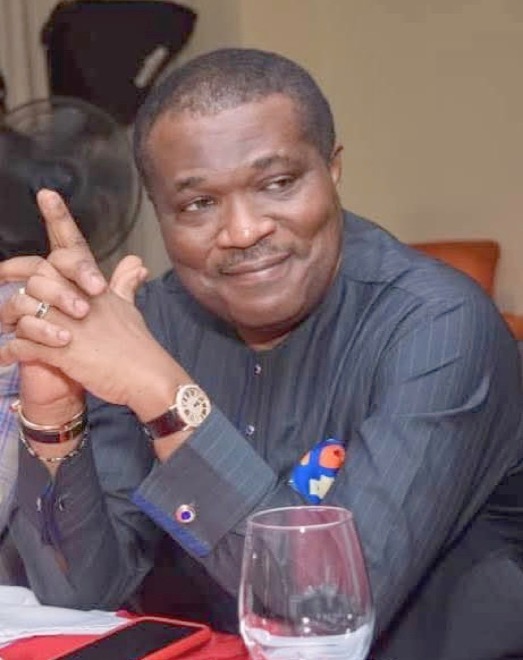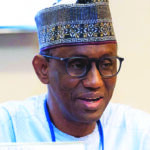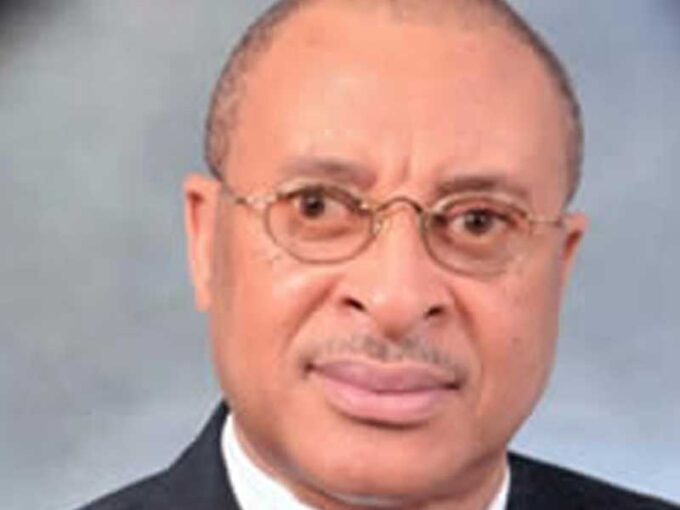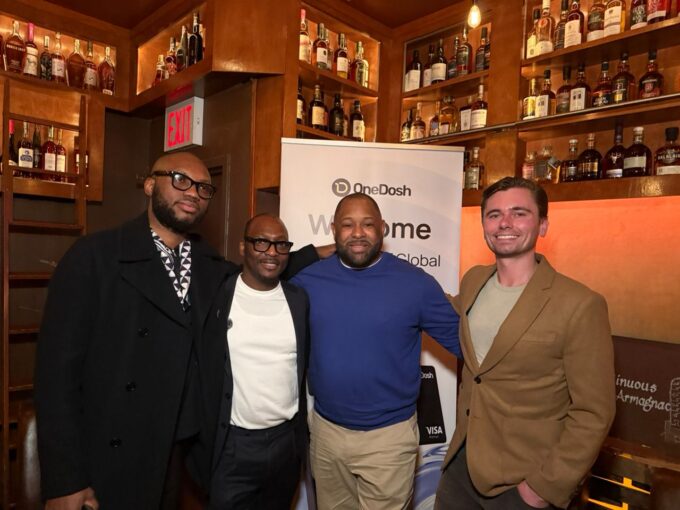The Chairman of Odu’a Investment Company, Otunba Bimbo Ashiru, shares with Kayode Alfred how diligence, faith, and balance have guided every chapter of his story.
In person, Otunba Bimbo Ashiru possesses a presence that fills a room effortlessly. He greets with a firm handshake, listens intently, and chooses his words as though each one must earn its place. There is nothing hurried about him. Though he belongs comfortably to many worlds —corporate, political, traditional, and social —he wears each with the same understated grace.
The late-afternoon light filters softly through the wide glass panels of his Ikoyi home, catching the edges of framed photographs and polished wood. On the centre table, a neatly stacked file sits beside a cup of tea gone lukewarm. It is one of those Lagos afternoons that invite reflection, and Ashiru, chairman of Odu’a Investment Company Limited, seems to oblige it.
In less than a year, the venerable conglomerate will mark its 50th anniversary, a milestone he regards not merely as a corporate event but as a moral obligation to history.
His phone buzzes at intervals with logistics calls, committee updates, and confirmations, but he barely breaks stride in conversation. “I like to see things done properly,” he says with a quiet firmness that feels rehearsed by years of habit. “If you must do something, do it well.”
That, perhaps, is the story of his life: a persistent refusal to approach any task halfheartedly. Whether in the boardroom, in government, or at the quiet centre of family and faith, Ashiru has built a reputation for thoroughness, grace, and quiet achievement. The upcoming golden jubilee of Odu’a has simply given that instinct a new expression. Friends say he is pulling all the stops, curating ideas, reconnecting with stakeholders, and reimagining how a legacy company should tell its story.
For Ashiru, the preparations for an event still months away go beyond speeches and ceremonies. They are an act of stewardship, a reflection of a creed that has followed him since his earliest days: whatever your hands find to do, do it with all your might.
For all the polish and poise that now define him, Ashiru’s foundations were remarkably simple. Born in Ijebu-Ode to a family of distinction and duty, his father, the late Pa Simeon Adeyemi Ashiru, was a respected statesman; his mother, Princess Moradeun Ashiru, descends from the Fidipote royal family of Ijebu-Ode and the ruling house of Owu-Ijebu. Yet in that household, royalty was never an excuse for indulgence.
“My parents didn’t raise us to think privilege meant exemption,” he recalls with a faint smile. “My father was clear about one thing. If you wanted respect, you had to earn it. And my mother, despite her royal background, believed that hard work was the truest expression of grace.”
Those lessons would become his compass. Discipline was non-negotiable, humility expected, and education considered a sacred trust. Drawn early to the logic of commerce, he studied Marketing and later earned a Master’s in Strategic Management.
People from well-connected families often rush to dabble in things because they want to prove to themselves that they can stand on their own without relying on their privilege. But he was different, says a longtime friend. “You could see he wasn’t trying to be someone else. He was trying to be excellent.”
When Ashiru joined the then Chartered Bank in 1989, he was one of many young graduates drawn to the prestige of banking, but he carried with him a sense of purpose that soon distinguished him.
Over the years, through Chartered Bank’s merger transitions and his eventual move to Stanbic IBTC, he became known for precision, mentoring younger bankers to see professionalism as a standard, not a role.
From his early days as Head of the Private Banking Unit to his later roles as Regional Coordinator, Country Director for Personal and Business Banking, and eventually Group Head for Public Sector, Ashiru’s career was a slow, steady climb built on consistency rather than drama. He often mentored younger bankers, teaching them not only the mechanics of finance but the ethic of professionalism. “You could tell he was grooming you not just for a role, but for a standard,” one former colleague remembers.
Those three decades in banking sharpened his instincts for structure, performance, and integrity. “Banking taught me the discipline of systems,” he says, “and that the smallest lapse in judgment can undo years of work.”
Public service often comes calling for people like this. Ashiru’s turn came in 2011, when he was appointed Ogun State’s Commissioner for Commerce and Industry. “When the governor called, I just knew it was time to serve,” he says with an easy nod. “I had spent years building systems in the private sector, and I wanted to use that experience to help my state grow. Sometimes, you don’t plan these things. Duty just finds you.”
If he felt any trepidation at leaving the orderly world of banking for the chaotic and unpredictable terrain of governance, he didn’t show it. Instead, he showed results, and they were hard to ignore.
During his tenure, Ogun State’s internally generated revenue grew by over 1,200 per cent. More than 300 factories and companies established a presence in the state, and the World Bank’s Doing Business report ranked Ogun among the top five investment-friendly states in Nigeria, up from thirty-sixth position.
But beyond the numbers was a philosophy. “I wanted the government to work with the same seriousness as business. The goal was not just more money in the state’s coffers but tangible progress that the ordinary citizens can touch and feel. More work, better salaries, higher quality of life. Policy only makes sense when people can feel the impact in their daily lives.”
By the time he left office in 2018, he had earned a reputation as one of Ogun State’s most effective commissioners in its entire history. Perhaps, he could have done even more as commissioner? “Perhaps,” he agreed. “But I gave it my best shot, and that is the most important thing.”
The conversation drifts easily, and it is at this point that the madam of the house, Olukemi, walks into the living room. She pauses to listen, a soft smile on her face, before settling beside him on the arm of the chair. “He likes to talk about values,” she says, teasingly, her hand resting lightly on his shoulder. “But everything he says, he actually lives.”
Ashiru laughs, the kind that comes from being caught mid-seriousness. “I grew up in a home where faith was not optional,” he says. “My father used to tell me that your name is the only inheritance you can’t afford to waste.”
“That’s exactly who he is,” Olukemi adds. “Very disciplined, but never harsh. He believes in doing things properly, no matter how small.”
That combination of firmness and grace seems to define him. Even at the height of his public service, he was known to keep his morning devotion and quiet time, insisting that a calm mind produces better judgment. Friends say he rarely raises his voice, but when he speaks, people listen.
At home, that ease of command deepens into warmth.. “He believes in balance,” Olukemi says. “He works hard, but he also knows when to pause and just be present.” Perhaps that is the secret to his composure.
When the conversation returns to Odu’a Investment Company, the energy in the room changes slightly. Odu’a, to him, is not just an investment conglomerate. It is a heritage. If all the Yoruba peoples are one family, then Ashiru regards Odu’a as one of its most valuable heirlooms, a legacy passed down by the founding western states. It carries deep intergenerational meaning and regional pride.
Under his chairmanship, Odu’a has revitalised its key assets, expanded its portfolio, and strengthened governance. “We have tried to build confidence,” he says. “If you get governance right, every other thing begins to fall into place.”
He talks about the company’s renewed focus on real estate redevelopment, agriculture, logistics, and digital infrastructure. The revival of iconic assets like the Premier Hotel and Lagos Airport Hotel, the acquisition of a marginal oil field, and the creation of the Odu’a Investment Foundation all feature in his account. “We are not just managing old assets,” he says. “We are building new stories. The goal is to make Odu’a a company that can stand shoulder to shoulder with any global institution.” The foundation, in particular, seems close to his heart. He explains it was seeded with one per cent of the company’s profit before tax to support digital education and youth empowerment.
So any concrete plans for the 50th anniversary he can share with the public now? He smiles in that way that hints at something carefully kept under wraps. “Let’s just say we are planning something worthy of Odu’a’s legacy. It will be a celebration, yes, but more importantly, it will be a statement about the future.”
He pauses, glancing briefly toward a framed photograph of the company’s early founders on the shelf nearby. “The men who started this dream did not have much, but they had belief. We owe it to them to make the next 50 years even more impactful.” It feels like a promise that he is determined to keep.
Beyond Odu’a, he chairs Blackcod Asset Management Group and sits on the boards of Iwosan Investments Limited, OGC Foods and Beverages, and other enterprises. Yet each role seems to echo his creed. “You can’t choose when to give your best,” he says. “Once excellence becomes part of you, it shows everywhere in how you work, how you lead, even how you live.”
He talks about Odu’a’s future, strengthening the company’s capital base and embedding a governance culture that endures. But his thoughts do not stop there. There is still that unspoken pull toward public service, a lingering sense that his story with Ogun State is not quite finished. “I’ve always believed leadership is a lifelong calling,” he says, smiling as if to soften the weight of his words.
“If the opportunity comes again to serve in any capacity, I’ll be ready. You don’t retire from service. You just find new ways to offer it.”
The conversation shifts towards legacy, “I want to be remembered as someone who built people, who created structures that made life easier for others. If years from now a young person somewhere says they were inspired to lead or to build because of something I did, that will be enough.”
So does he consider himself a successful leader? He gazes toward the fading skyline, thoughtful. “The real test of leadership,” he says finally, “is whether the house still stands when you’ve left the room.”

















Leave a comment